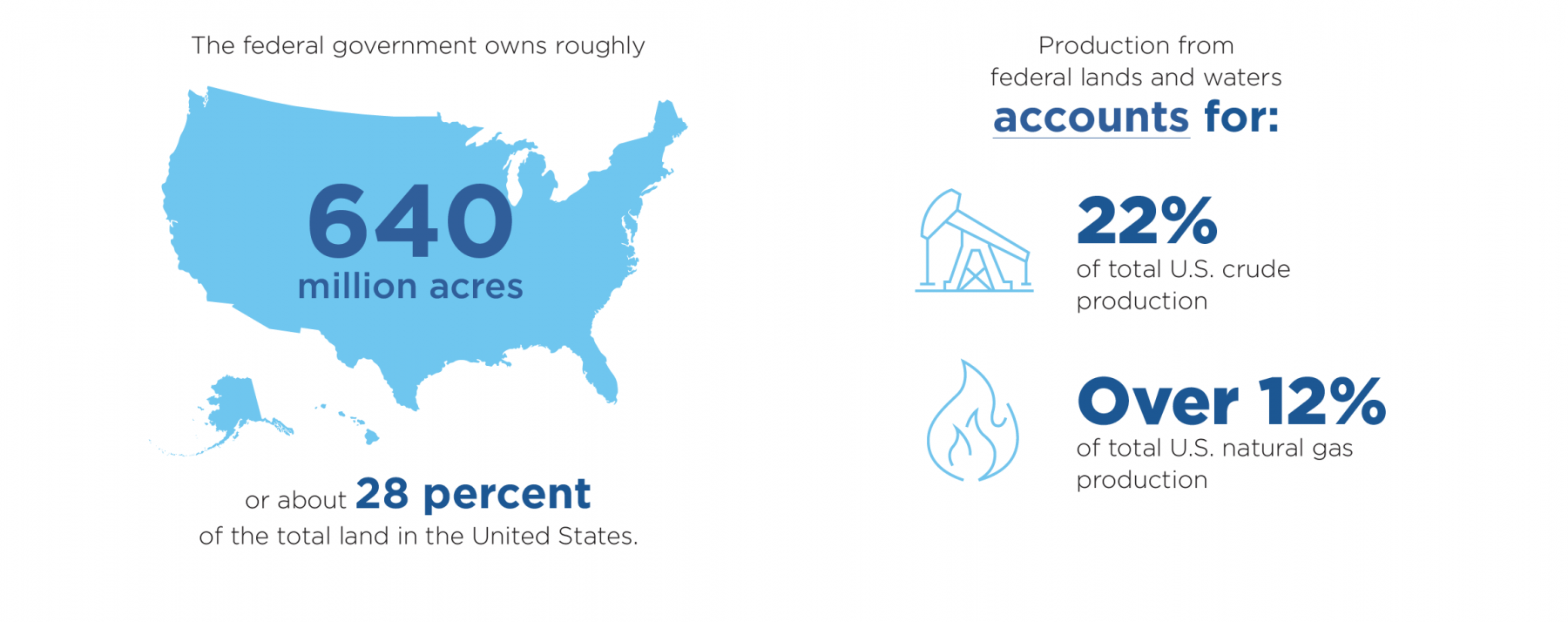Oil and gas development on federal lands and waters supports the U.S. economy, creates jobs, reduces consumer costs and keeps America energy secure.
Oil and natural gas development on federal lands and waters plays a significant role in supporting the U.S. economy and American energy security. A ban on energy production on federal lands and waters would result in higher energy prices for consumers and the loss of hundreds of thousands of good paying, domestic jobs – the last thing needed as America seeks to recover from the COVID-19 pandemic.

WHAT ARE FEDERAL LANDS AND WATERS?
Referred to as federal or “public lands,” these areas support a variety of activities including recreation, livestock grazing, timber, and oil and gas development. Federal agencies also oversee economic activities, including energy development, in U.S. offshore waters.
NO FEDERAL ENERGY PRODUCTION OCCURS IN NATIONAL PARKS AND CONSERVATION AREAS
Importantly, federal land acreage where oil and natural gas development is taking place is not the same as designated national parks, monuments or conservation areas.
National parks and monuments – overseen by the National Park Service - represent less than 4% of total U.S. land area, while other federal lands used for hunting, hiking and conservation are overseen by the Fish and Wildlife Service and account for about 4% of total U.S. acreage. More than 40% of federal lands — 10% of our total land — is overseen by the Bureau of Land Management, and that is where energy production occurs.

Sources: Associated Press; BP
BENEFITS OF FEDERAL LANDS AND WATERS ENERGY DEVELOPMENT
Accounting for a substantial portion of total oil and natural gas production, federal land and water development supports American jobs, lowers energy costs, and provides vital funding for education and conservation efforts.
During the 2019 Fiscal Year, oil and natural gas development on public lands contributed:
- Nearly $76 billion to the U.S. economy
- Supported approximately 318,000 jobs
Abundant supplies of oil and natural gas from federal lands mean lower costs for Americans at the pump and on home energy bills.

Source: Congressional Research Service
CONSEQUENCES OF A LEASING BAN ON FEDERAL LANDS AND WATERS
An oil and natural gas ban on federal lands and waters would negatively impact the U.S. economy, resulting in a loss of jobs, vital tax revenue, and billions of dollars in economic activity. According to a recent analysis, implementing a federal leasing ban would result in1:

1 An economic impact analysis of recent onshore and offshore development on federal lands was conducted on behalf of the U.S. Chamber of Commerce’s Global Energy Institute with underlying studies prepared for the State of Wyoming and National Ocean Industries Association on the topic.


